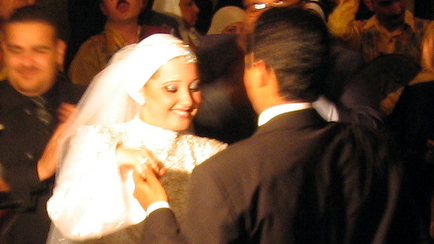Sexual Disenfranchisement Fuels Civil Unrest in Egypt

After listening to an interview on CBC Radio yesterday with the young Egyptian lawyer, Mohamed Badr, who was speaking out about his treatment in the hands of police after being taken into custody for participating in the protest against Egyptian President Hosni Mubarak, I was particularly struck by the reason he gave for his defiance. He told the interviewer (through a translator):
I participated in the protests every day, along with other youth. I wanted to fight the lack of rights and the corruption, the extreme corruption that we have in the country. Rent is so high. I even can’t afford basic living expenses. I can’t even afford my own place. All I can do is eat and drink but I can’t afford my own living situation. And this is standing in the way of me getting engaged or even married. I don’t even have the capability to even be in a relationship because I am not equipped to handle the financial expenses associated with marriage.
Mr. Badr is angry because he lives in a country where both the economic institutions and the social norms that govern sexual behaviour have left him sexually disenfranchised.
I would be angry too.
This reminded me of an article that was written a few years ago, and published in Psychology Today, that argued that the reason why most suicide bombers are Muslim is that polygyny necessarily excludes some men from the marriage market; if half the men have two wives, and there are equal numbers of men and women, then it must be the case that the other half has none.* The authors argue that polygyny is always associated with an increase in violent male behaviour as a result of increased male competitiveness, even after controlling for other factors such as increased economic inequality and the level of democracy.
I don’t know the prevalence of polygyny in Egypt, but I don’t think in the case of Mr. Badr that polygyny is necessarily the problem. The problem is that rules that govern the distribution of economic resources across society in Egypt have prevented even well-educated and employed individuals like Mr. Badr from being able to afford marriage. In many countries in the world having no prospects for marriage would not sentence a man to a life of celibacy. But in a society that has no tolerance for sex outside of marriage that is exactly the life Mr. Badr, and many others, have to look forward to.
That is, of course, unless something changes.
*Miller, Alan S. and Kanazawa, Satoshi (2007).”10 politically incorrect truths about human nature.” Psychology today, 40 (4). pp. 88-95. ISSN 0033-3107





